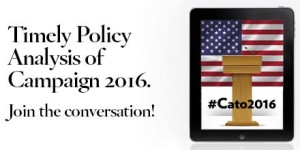Public figure Donald Trump, target of a Club for Growth attack ad, has responded in characteristic manner by firing off a cease and desist letter to the club [Business Insider, Chris Cilizza/Washington Post] Trump lawyer Alan Garten calls the ad:
“…replete with outright lies, false, defamatory attacks and destructive statements and downright fabrications which you fully know to be untrue, thereby exposing you and your so-called ‘club’ to liability for damages and other tortious harm,” Garten wrote.
Garten said he was only willing to offer the Club for Growth a “one-time opportunity to rectify this matter” and avoid “what will certainly be a costly litigation process.”
“In the event, however, that we do not receive these assurances, please be advised that we will commence a multi-million dollar lawsuit against you personally and your organization for your false and defamatory statements,” he concluded. “Please be guided accordingly.”‘
Four years ago I wrote about Trump’s long record of using litigation and its threat as a weapon against critics and journalists whose account of his business dealings he found displeasing, and questioned whether this pattern harmonized well with general Republican/conservative disapproval of the unnecessary use of litigation. Earlier on Trump. More: Jonathan Adler (“suit has no legal basis” and “is what is commonly known as a SLAPP suit — a suit that’s designed to shut people up.”)

